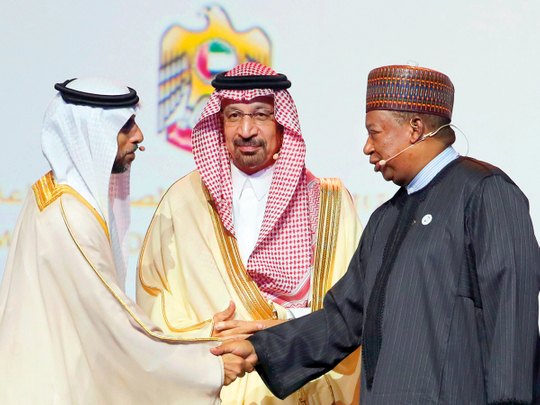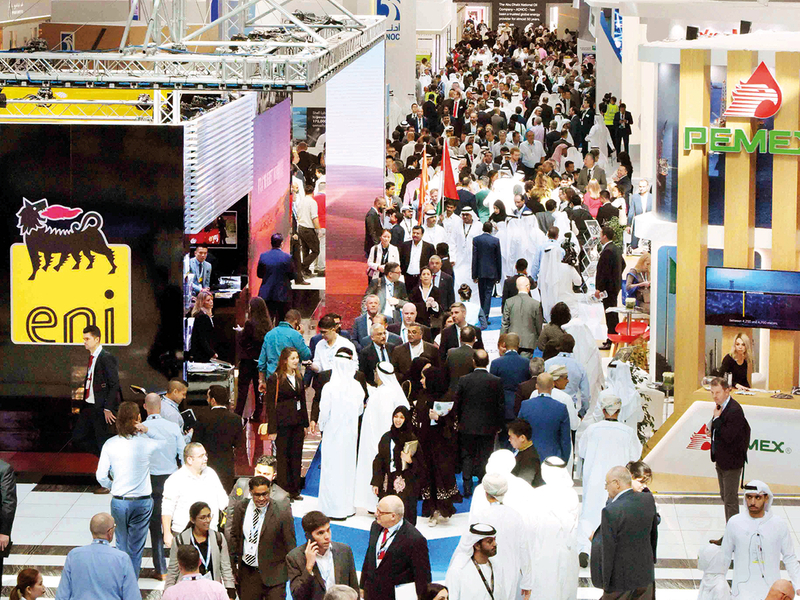
Abu Dhabi: Ministers of energy from the UAE and Saudi Arabia stressed the importance of Opec (Organisation of Petroleum Exporting Countries) to the global economy on Sunday, warning of “chaos” without a body like Opec in oil markets.
“People who do not understand how Opec works think that we can afford not to have it. I can assure you there will be chaos,” said Suhail Mohammad Faraj Al Mazroui, Minister of Energy and Industry. “You will see double digit (increase) in oil prices and none of our countries are aspiring to have that environment.”
Speaking during a panel discussion at the Abu Dhabi International Petroleum Exhibition and Conference (Adipec), Al Mazroui said it was “naive to think that you can just get rid of Opec and things will be better.”
He said oil markets will be “way worse” if Opec were dissolved.
His comments come after media reports said a Saudi Arabian think tank is studying what would happen to oil markets in a world without Opec.

The UAE minister elaborated that Opec was not a cartel, and that it is instead “a group of responsible producers” whose work also facilitates investments in the energy industry.
“The world economy cannot afford fluctuations without Opec. It is not an organisation that is greedy towards targeting a certain price. Opec is an organisation that targets market balance,” Al Mazroui said.
Echoing his views was Khalid Al Falih, Saudi Arabia’s minister of energy, industry, and mineral resources, who was on the same panel.
“I would argue that today, with the US having liquid production of roughly 15 million barrels that move up and down based on what Opec policy is, that Opec becomes more central to US energy supply. We become, essentially, an enabler to the growth of new sources of energy,” Al Falih told an audience of ministers, energy executives, and journalists.
He argued that Opec was just as essential to the stability and growth of energy markets as central banks are to financial markets and monetary policy, saying that “there needs to be a central bank for the oil markets.”
And it’s not just oil that is impacted by decisions from Opec, Al Falih said.
“We saw when Opec did not act in 2014 and 2015 that even renewable energy was hammered down by lower costs of energy overall. We believe that Opec is essential for the stability of world energy markets, primarily oil, but oil impacts gas, it impacts renewables, it impacts fossil fuels, so it’s [Opec], I think, very important for global energy,” he said.
Asked about his views on the study by the Riyadh-based think tank, Al Falih said, “I cannot assure you that within policy circles, there’s no consideration whatsoever to eliminate Opec, but the reason they call them ‘think tanks’ is they like to think out of the box.”








